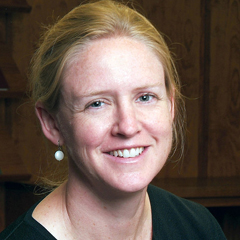Stephanie Jones, Harvard University – Early Childhood Care
 Early childhood care is vital.
Early childhood care is vital.
Stephanie Jones, professor in early childhood development at Harvard University, looks into how to study it to gain more perspective.
Stephanie Jones’ research, anchored in prevention science, focuses on the effects of poverty and exposure to violence on children and youth’s social, emotional, and behavioral development. Over the last ten years her work has focused on both evaluation research addressing the impact of preschool and elementary focused social-emotional learning interventions on behavioral and academic outcomes and classroom practices; as well as new curriculum development, implementation, and testing. Jones is a recipient of the Grawemeyer Award in Education for her work with Zigler and Walter Gilliam on A Vision for Universal Preschool Education (Cambridge University Press, 2006) and a recipient of the Joseph E. Zins Early-Career Distinguished Contribution Award for Action Research in Social and Emotional Learning. Jones’ research portfolio emphasizes the importance of conducting rigorous scientific research, including program evaluation, that also results in accessible content for early and middle childhood practitioners and policymakers. Her developmental and experimental research investigates the causes and consequences of social-emotional problems and competencies; strategies for altering the pathways that shape children’s social-emotional development; and programs, interventions, and pedagogy that foster social-emotional competencies among children, adults, and environments. Her policy-driven research with colleague Nonie Lesaux focuses on the challenge of simultaneously expanding and improving the quality of early childhood education, at scale (The Leading Edge of Early Childhood Education, Harvard Education Press, 2016). Jones serves on numerous national advisory boards and expert consultant groups related to social-emotional development and child and family anti-poverty policies, including the National Boards of Parents as Teachers and Engaging Schools. She consults to program developers, including Sesame Street, and has conducted numerous evaluations of programs and early education efforts, including Reading, Writing, Respect and Resolution, Resolving Conflict Creatively, SECURe, and the Head Start CARES initiative. Across projects and initiatives, Jones maintains a commitment to supporting the alignment of preK-3 curricula and instructional practices.
Early Childhood Care
As cities and states across the U.S. expand their early education systems to meet families’ needs and give children a boost in the foundational years, it is crucial that research catches up to today’s reality. For decades, research has focused on the question of whether specific, formal programs “work,” instead of providing solutions to the problem of expanding and improving the system, which includes informal and formal settings.
To bridge the gap between research and policymaking, we’ve been conducting a large-scale study focused on all the different types of settings where children receive their care, and in particular on making links between features of these settings and young children’s learning and development.
The study began with a household survey to arrive at representative samples of 3- and 4-year-olds in Massachusetts, and of formal and informal care settings. Because young children in informal care—which is estimated to be a large number—can be difficult to locate, they aren’t often included in research, limiting its impact.
Our findings show that children are in formal and informal settings in roughly equal numbers, but 3-year-olds are slightly less likely to be in formal environments than are 4-year-olds, which may reflect parental preference or differences in access to formal settings. Overall, parents’ confidence in their child’s early education and care is generally high, whether their child is in a formal or informal setting.
In the coming years, we will continue to document and describe the 5,000 participating children’s daily environments and make links between features of settings and children’s learning and development. The findings from this study will inform a strategy for scaling, guided by the goal of ensuring that all children have access to high-quality early learning experiences that set them on a path toward academic and personal success.


